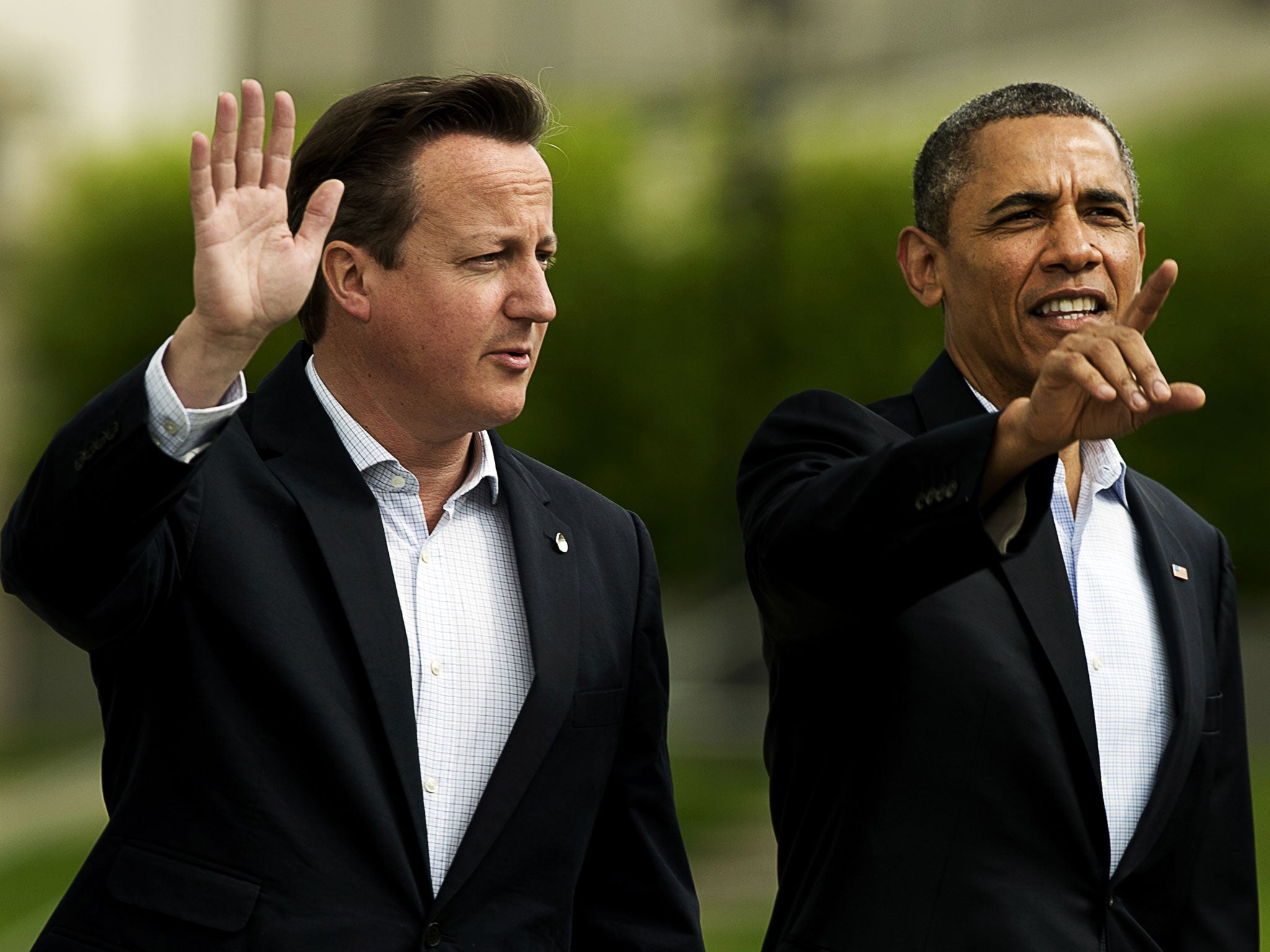The West likes to give a little, and take a lot of credit
The leaders of rich countries make grand pledges, but then fail to carry them out in anything like the form promised

When people give to charity, they tend to save any bragging about it until after the money has left their account, if they brag at all. The etiquette is altogether different in international affairs. For the leaders of nation states, it is quite all right, even expected, to make a song and dance about any do-gooding before the good has been done.
History suggests it is through this lens that we should view the recent spate of pledges to the UN’s Green Climate Fund (GCF) – with Barack Obama receiving much applause for last week’s promise of £2bn, and David Cameron following Japan, France and Germany yesterday with an IOU for another £650m.
In effect, the GCF is a “sorry” from the rich world to the poor. It is to be financed by countries that got in their industrialisation before anyone realised that burning large amounts of fossil fuels could do unpleasant things to the planet. What money it raises will help the Bangladeshes of this world to protect themselves from the consequences.
It is a good plan, for two reasons. First, having dined so fulsomely at the Carbon Club for 200 years or so, it would be extraordinarily unfair for rich countries to leave the international minnows – just arriving – with a devastated table and the full bill. (Especially given that the cheapest of flood defences costs hundreds of millions of pounds.) Second, and less high-mindedly, if we don’t buy off poorer countries, they would be within their rights to stick two fingers up at Al Gore and the IPCC and burn all the coal they can in a bid to get rich – that’s how everyone else did it.
The only problem then with the GCF is that, at this stage, it is very much an in vitro project, and if past international fundraisers are anything to go by, it may end up doing rather less than it says on the tin. The aim is to raise £64bn a year. So far, £8m sits in its accounts, or enough in geopolitical terms for a sturdy pair of Wellington boots.
Will the rest of the money arrive? It isn’t certain to. Obama, for example, faces something of a chore in persuading the Republican-dominated Congress to actually sign off the $3bn he pledged, given that most of the GOP isn’t particularly fond of poor people, or foreigners, and exclusively believes in the kind of climate change you can fix with an Air Blaster 3000.
In Cameron’s case, read Ukip for the Republicans. So fearful of Nigel Farage’s party is the Prime Minister that he appears reluctant to take the credit for a pledge that – if carried out properly – would show that Britain is on the right side of history, and science, and morality. Any money will “not be new”, he muttered, signalling that it would be instead diverted from the pre-existing aid budget, where, presumably, it has been twiddling its thumbs up until now.
What form the donations actually take is also yet to be decided. In the last club-together for poor nations to fight climate change, in 2010, more than half of the pledges involved some form of “debt relief” – which is a bit like helping someone to build a dyke by cancelling their grocery bill. Very few nations gave “transparently”. And according to one average of climate finance projects, less than 10 per cent of the money promised ever makes it into the real world.
The same story repeats itself whenever compassion and high-level politics meet: from the earthquake in Haiti to the Indonesian tsunami, the leaders of rich countries make grand pledges – then fail to carry them out in anything like the form promised.
The GCF should improve matters. It is supposed to be the most transparent giving vehicle yet. Certainly, the large promises show that rich countries know what a fair deal looks like. But, as a Malawian treasury minister might say: “Show me the money, people.”
Julien Blanc should pick up a more honest soubriquet
I’m not alone in finding “pick-up artists” (PUA) objectionable – a petition signed by 150,000 people is calling for Julien Blanc, a star in the PUA world, to be denied entry to the UK – but one of my objections to them is, as yet, under-represented. It concerns the name they’ve given themselves.
I’m sorry but “peacocking” in garish hats and telling every second girl you see on the street that you “like her energy” doth not an “artist” make. That word retains, just about, an aura of creativity, joy and self-expression. It is used to describe Michelangelo. It shouldn’t be used, really, to describe One Direction. Everything I’ve seen of the PUA lifestyle suggests it is more a science, if a half-cocked one. Sad sacks are encouraged to follow a set of rules to get laid. I suggest instead “pick-up technicians” or something like that.
Join our commenting forum
Join thought-provoking conversations, follow other Independent readers and see their replies
Comments
Bookmark popover
Removed from bookmarks